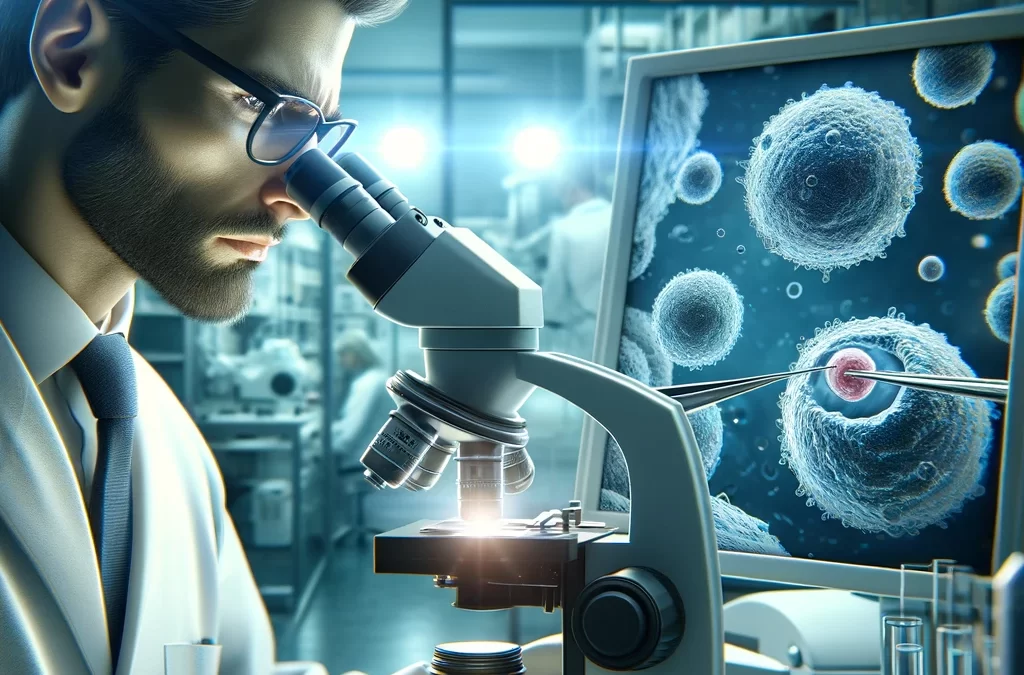A recent study out of the University of Texas Southwestern Simmons Cancer Center showed that lactate—a metabolic byproduct produced during exercise—could be used to enhance cancer immunotherapy. The researchers believe that lactate could be used to rejuvenate cancer-fighting immune system cells. These findings, which were published in the journal Nature Communications, could potentially be used to improve the anti-tumor effects of cancer immunotherapies.
What is Lactate?
Lactate is a byproduct that the body consistently produces during exercise and normal metabolism. When at rest, lactate is concentrated in the blood at about 1-2 millimoles per liter (mmol/L), but increases to 20 mmol/L during periods of intense exercise.
Physicians often use lactate in Ringer’s solution, which is administered through the veins to replace fluids caused by blood loss suffered in trauma, surgery, or severe burns. It is also used to treat a condition called metabolic acidosis.
Lactic acid (lactate with an extra proton) has previously been associated with cancer growth and immune suppression. However, researchers know relatively little about how lactate can affect cancer and immunity. The UT Southwestern Simmons Cancer Center study was designed to investigate this question.
Methodology of the Study
This study was led by Jinming Gao, Ph.D., professor of cell biology, otolaryngology-head and neck surgery, and pharmacology. Gao’s team of researchers administered lactate injections to mice with melanoma or colon cancer, while other tumor-bearing mice were given glucose injections. The glucose-injected mice showed little response to the injection, but the lactate-treated mice showed a significant reduction in tumor growth.
The researchers attempted the same experiment in mice that were genetically engineered to lack T-cells. In this experiment, the tumor effect was blocked—which the researchers believe shows that lactate was made effective through this population of immune cells.
The administration of lactate on its own did not completely eliminate tumors. However, the results were more encouraging when researchers administered a common immune checkpoint inhibitor—a cancer immunotherapy method that stops the inhibitors that prevent T-cells from fighting against malignancies. After administering the inhibitor, approximately half of the mice became completely free of tumors.
The researchers then moved on to a single-cell RNA sequencing analysis, which showed that more T-cells breached the tumors of the mice treated with lactate. The lactate-treated mice had T-cells that expressed more genes associated with stem-like T-cells, and a smaller number of genes related to exhaustion markers, which made them more apt to fight cancer.
How Could These Findings Be Used?
According to study author Dr. Gao, the team’s findings show that lactate could be used as a supplement to currently popular immunotherapies, including:
Immune Checkpoint Inhibitors—This form of immunotherapy uses immune checkpoints, which are a key part of the immune system that work to prevent immune responses from being dangerously strong to the point that healthy cells can get destroyed. Immune checkpoints are activated when T-cells recognize and bind to partner proteins from other cells, including tumor cells. Immune checkpoint inhibitors block this binding process, which can make it easier for T-cells to kill cancer cells.
CAR-T Cell Therapy—Chimeric antigen receptor (CAR) T-cell therapy is designed to cause T-cells to fight cancer by altering them in the lab and adding properties that allow them to identify and destroy cancer cells. The genes inside of the T-cells are altered to achieve this effect, and this form of therapy is also referred to as cell-based gene therapy.
Cancer Vaccines—Cancer vaccines are used to show the immune system how to better recognize and destroy cancer cells. Developing effective cancer vaccines is often more complicated than producing vaccines designed to treat other illnesses. This is because, unlike viruses or bacteria, cancer cells often appear as normal cells to the immune system. In addition, each person’s tumor is unique and has its own antigens, so more sophisticated and personalized vaccines are needed to effectively prevent or treat cancer.
Can Exercise Help Prevent Cancer?
The findings of this study also suggest that frequent exercise could potentially help prevent cancer and alter the immune system to fight against cancer more effectively, as exercise naturally raises lactate levels. The team of UT researchers plans to investigate this idea in future studies.
The potential link between frequent exercise and a reduced risk of cancer is nothing new. According to the American Cancer Society Guidelines on Nutrition and Physical Activity for Cancer Prevention, regular physical activity has been correlated with a lower risk of several forms of cancer—including breast, colon, endometrium, prostate, and possibly pancreatic cancer.
In addition, regular exercise promotes healthy weight levels, which in turn helps the immune system function better and helps regulate hormones. Overweight and obesity are a factor in approximately 14 percent to 20 percent of cancer deaths in the United States, so losing weight could potentially lower the risk of contracting cancer.

